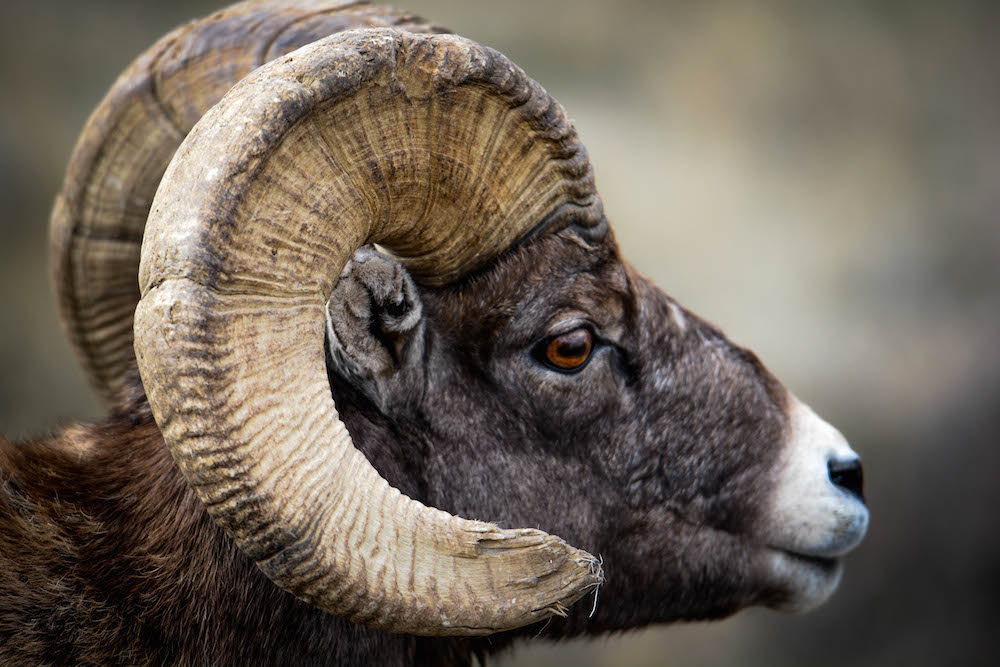|
Domestic Sheep Threaten Wild Bighorn with Disease Additional Contacts: Glenn
Hockett, Gallatin Wildlife Association, glhockett@bresnan.net (406) 581-6352 Great Falls, MT – Bighorn sheep advocates in Montana asked a judge last month for protection of bighorn sheep habitat on United States Forest Service public lands. The groups asked the court to rule against the Forest Service for authorizing domestic sheep allotments on public lands that historically supported and could again support large numbers of bighorn sheep on the Beaverhead-Deerlodge National Forest. On February 25th 2016 WildEarth Guardians, Gallatin Wildlife Association, Western Watersheds Project and Yellowstone Buffalo Foundation asked a federal judge to rule that the Forest Service is jeopardizing wildlife in the Gravelly Mountains of southwest Montana with approval of sheep grazing allotments. Seven domestic sheep allotments covering more than 55,000 acres of land surround Bighorn Mountain in the Gravelly Mountains. “Bighorn sheep need a safe place in this wild county between Yellowstone and the northern Rockies,” said Bryan Bird of WildEarth Guardians. “Public lands are a haven for wildlife and the Forest Service needs to acknowledge the threats from domestic sheep grazing." Domestic sheep allotments in the Gravelly Mountains between Yellowstone National Park and the wild lands in the northern Rockies are a serious threat to wildlife especially bighorn sheep and grizzly bears. The groups’ claim in their lawsuit that new information regarding the impacts of domestic sheep grazing required the Forest Service to update its environmental analysis. “We know bighorn sheep are in trouble and we’ve waited over ten years for the Forest Service to consider the impacts of domestic sheep grazing allotments,” said Paul Griffin of the Gallatin Wildlife Association. “The government is not giving us any reason to believe they ever will.” Montana Fish, Wildlife and Parks set a goal in 2010 of reintroducing five new herds of bighorn sheep in Montana by 2015. No new herds of bighorn sheep have been reintroduced to date. Biologists for Montana Fish, Wildlife and Parks and the Forest Service have both acknowledged that bighorn and domestic sheep cannot occupy the same areas because domestic sheep carry pneumonia that is easily passed to bighorn sheep, causing collapse of entire populations. Eighty-five percent of the current tiny bighorn herds in Montana are decreasing and not long-term genetically viable. Close contact with domestic sheep is a guaranteed generational death sentence for bighorns. Bighorns were exposed to pneumonia-causing organisms when domestics were first introduced in Montana and have continued to be decimated by these persistent bacteria for generations. There is no co-exist scenario possible on public lands for producing genetically healthy thriving bighorn herds but the USFS could find suitable non conflict allotments for domestic sheep growers. The groups offered to settle the case last year if the Forest Service agreed to prepare a new environmental analysis by a mutually agreed upon date. The conservation organizations also tried to reach out to the domestic sheep producers to talk about voluntary grazing permit retirement before they filed suit. “In the past, other organizations such National Wildlife Federation have been involved in programs that would compensate sheep ranchers to retire allotment permits,” said Glenn Hockett, Gallatin Wildlife Association. “Compensation is a fair strategy for protecting wildlife on public lands and meets all parties' needs.” In
2006 a
74,000-acre sheep grazing allotment south of Big Timber in the Gallatin
National Forest was permanently closed, and National Wildlife Federation paid
the ranchers who used it for generations. The permittee was paid $130,000 for giving
up grazing privileges and the USFS agreed to permanently close the allotment.
This is an effective solution to deal with chronic conflicts between wildlife and
livestock and provides money to the sheep grower to obtain grazing lands away from
core wildlife areas near Yellowstone. photo credit: John Meyer, WildEarth Guardians |
|
|
info@wildearthguardians.org | © WildEarth Guardians | Historical Archives | Privacy Policy

